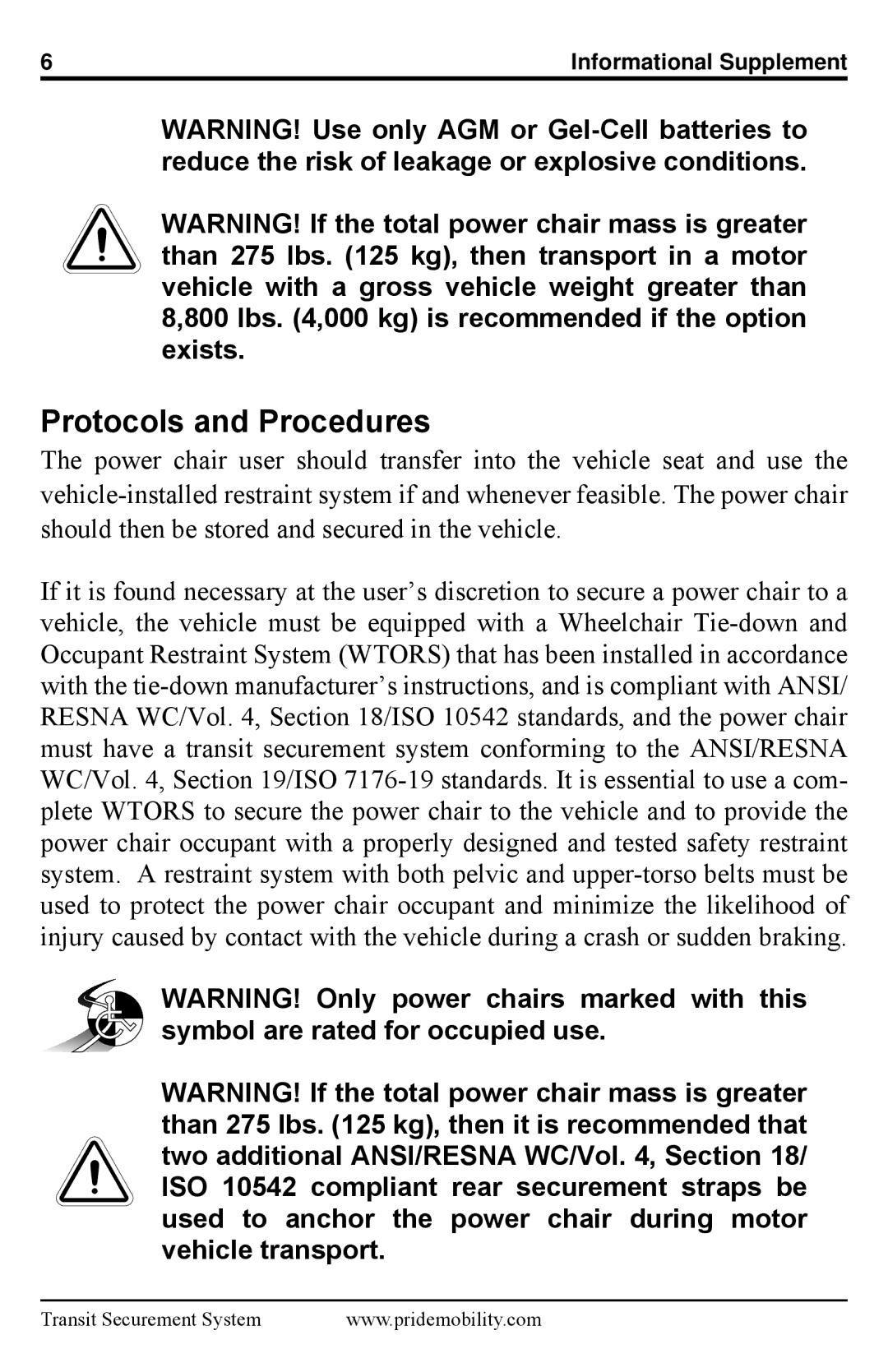
6 | Informational Supplement |
WARNING! Use only AGM or Gel-Cell batteries to reduce the risk of leakage or explosive conditions.
WARNING! If the total power chair mass is greater than 275 lbs. (125 kg), then transport in a motor vehicle with a gross vehicle weight greater than 8,800 lbs. (4,000 kg) is recommended if the option exists.
Protocols and Procedures
The power chair user should transfer into the vehicle seat and use the vehicle-installed restraint system if and whenever feasible. The power chair should then be stored and secured in the vehicle.
If it is found necessary at the user’s discretion to secure a power chair to a vehicle, the vehicle must be equipped with a Wheelchair Tie-down and Occupant Restraint System (WTORS) that has been installed in accordance with the tie-down manufacturer’s instructions, and is compliant with ANSI/ RESNA WC/Vol. 4, Section 18/ISO 10542 standards, and the power chair must have a transit securement system conforming to the ANSI/RESNA WC/Vol. 4, Section 19/ISO 7176-19 standards. It is essential to use a com- plete WTORS to secure the power chair to the vehicle and to provide the power chair occupant with a properly designed and tested safety restraint system. A restraint system with both pelvic and upper-torso belts must be used to protect the power chair occupant and minimize the likelihood of injury caused by contact with the vehicle during a crash or sudden braking.
WARNING! Only power chairs marked with this symbol are rated for occupied use.
WARNING! If the total power chair mass is greater than 275 lbs. (125 kg), then it is recommended that two additional ANSI/RESNA WC/Vol. 4, Section 18/ ISO 10542 compliant rear securement straps be used to anchor the power chair during motor vehicle transport.
Transit Securement System | www.pridemobility.com |

